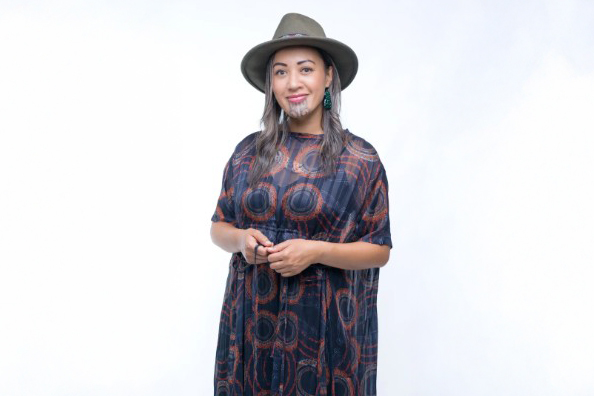Changes to te reo Māori and tikanga programmes at Te Wānanga o Aotearoa have improved learning pathways and given kaimahi the opportunity to provide tauira with better learning resources.
From 2017 the popular Level 2 Certificate in Te Ara Reo Māori programme becomes the Level 2 Certificate in Te Ara Reo Māori (He Tīmatanga) and Pouārahi Mikaere Taitoko says the changes – which were required by NZQA – mean tauira will receive qualifications for both Level 1 and Level 2 on completing the programme, rather than just Level 2 previously.
Including both Level 1 and Level 2 in one year-long programme – rather than two half-year programmes - makes sense and Mikaere says they have also included Level 3 and Level 4 qualifications in the Level 4 Certificate in Te Ara Reo Māori programme.
At Level 4, tauira could then choose either the bi-lingual approach through Te Ara Reo Māori or the full immersion approach with the Level 4 Certificate in Te Pūtaketanga o te reo.
Mikaere says the programmes include the same outstanding content as always but tauira would notice improved learning resources.
“This year we have focussed on improving resources. These programmes have large resources, such as dictionaries and reference books which we were able to source cheaper as e-books or apps without tauira having to carry around all these books. We’ve been using Digital Recording Devices which have been preloaded with these resources and the response has been amazingly positive,” he says.
The same approach to clearer pathways was used with the tikanga programmes, he says.
The half-year Level 3 Certificate in Tikanga Māori leads to the Level 4 Certificate in Tikanga Marae, the Level 4 Certificate in Te Arataki Manu Kōrero or the Level 4 Certificate in Indigenous Research and from there to the Level 5 Diploma in Te Arataki Manu Korero.
“The pathway at the moment, post Level 4 provides limited options. Next year we want to develop a tikanga degree strand for Te Mana Ao Tūroa, to go with the existing te reo and environmental strands,” Mikaere says.
He says the tikanga programmes have also been re-worked to be more flexible and to meet community needs.
“If a community wants to learn about, say, tikanga related to the ngahere then that specialist knowledge can be used around the existing tikanga programme framework. Tikanga can be contextualised to a field of knowledge. We’re trying to make our response to community learning needs quicker and more targeted.”
Where it would previously have taken at least two years to develop such a programme for a community, Mikaere estimates that could now be done in 3-6 months.
“We have great hopes for this approach.”




































